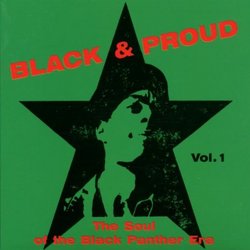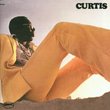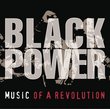| All Artists: Various Artists Title: Black & Proud: The Soul of the Black Panther Era, Vol. 1 Members Wishing: 0 Total Copies: 0 Label: Trikont Release Date: 5/16/2005 Album Type: Import Genre: R&B Styles: Funk, Soul Number of Discs: 1 SwapaCD Credits: 1 |
Search - Various Artists :: Black & Proud: The Soul of the Black Panther Era, Vol. 1
 | Various Artists Black & Proud: The Soul of the Black Panther Era, Vol. 1 Genre: R&B
Since the late 1950s the Afro-American struggle for civil rights, equality and freedom had mainly followed the tactics of peaceful resistance. The majority of black youth in the ghettos, however, was fed up with being subm... more » |
Larger Image |
CD Details
Synopsis
Album Description
Since the late 1950s the Afro-American struggle for civil rights, equality and freedom had mainly followed the tactics of peaceful resistance. The majority of black youth in the ghettos, however, was fed up with being submissively peaceful. They felt frustrated by the governmentts stalling tactics, by wide-spread poverty, de facto segregation and the realisation that they would not be able to stop white police terror and racism if they carried on demonstrating with bibles in their hands. 'Black Power' became the new slogan and in 1966 the 'Black Panther Party' was born to take on those issues in a more radical way. By 1968 there were about 5000 Black Pathers patrolling American cities. Not only did they protect blacks against police violence, they also set up breakfast places for school children in the ghettos and organised donations of food and clothing. The white political establishment was horrified and declared war on the 'the biggest threat to the national security of America' (Edgar Hoover, chief of the FBI). By the early 1970s the Black Panthers were almost defeated and most of its leaders dead or in prison. Poets, musicians and pop stars such as Gil Scott-Heron, The Last Poets, the Staple Singers, Curtis Mayfield and Marvin Gaye had strongly supported Afro-Americans in their struggle and had given voice to 'Black Power'. Since the late 1960s the lyrics of numerous soul, funk, reggae and hiphop songs had been inspired by the struggle of the Black Panthers.Digipak edition includes a bonus booklet. Trinkot. 2005.
Similar CDs
| Curtis Mayfield Curtis (Dlx) Genres: Pop, R&B, Soundtracks, Classic Rock Label: Rhino / Wea | |

 Track Listings (19) - Disc #1
Track Listings (19) - Disc #1
